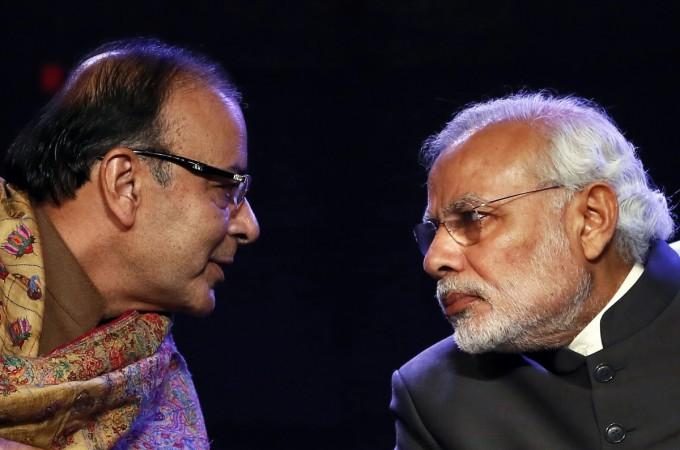
Stockbrokers have sought the rationalisation of the securities transaction tax (STT) in the Union budget, which will be the last one of the Narendra Modi government's current term.
The demand has been raised on a wish list that the Association of National Exchanges Members of India (Anmi) and Bombay Stock Exchange Brokers Forum have jointly presented to market regulator Securities and Exchange Board of India (Sebi).
Though the government in an election year is expected to present only a vote-on-account, the traders hope Finance Minister Arun Jaitley will look into their demands.
Another major issue on which the traders want Sebi to put pressure on the North Block to consider is a withdrawal of the dividend distribution tax (DDT), according to media reports.
Market sources say the traders are also pressing for an exemption from the long-term capital gains tax (LTGC), which they think is a major irritant for the market.
The brokers have sought a rethink of the additional STT on the exercise of options as it is causing "inefficient pricing" at settlement. The government levies additional STT at the rate of 0.125 per cent on option contracts that are exercised.
"We would like to state that extensive thought process has been put in and we as associations have pondered over each and every suggestion from our members," Anmi and Brokers Forum have said in the representation to Sebi.
The trade bodies say an increase in the STT rate, the withdrawal of a tax rebate, and the introduction of GST (goods and services tax) without subsuming the statutory levies related to stock exchange transactions are hurting the market.
An overall rationalisation would help increase trade volumes and boost government revenue, they say.
The government has from this financial year withdrawn an exemption from LTCG tax for securities held for a period exceeding three years. The LTCG is levied at the rate of 10 per cent. Earlier, the gains from the sale of shares held for a period of one year or more were exempt from taxes.
"It is pertinent to mention that in India, the percentage of total population investing in stock exchange-traded instruments is abysmally low. Hence, there is need to attract and incentivise the investors for holding the investment for long-term so as to attract conventional investors who invest in gold, fixed return instruments or real estate," the letter to Sebi says.
The brokers' bodies have sought the withdrawal of the DDT saying it is adversarial taxation. "The present form of adversarial taxation on a dividend of around 20 per cent results into triple taxation of corporate earnings. The tax on the dividend should be in the form of equalisation to balance the difference between corporate and personal tax. Hence, it is recommended that DDT is withdrawn and the tax should be levied at 10 per cent on the recipient."

















